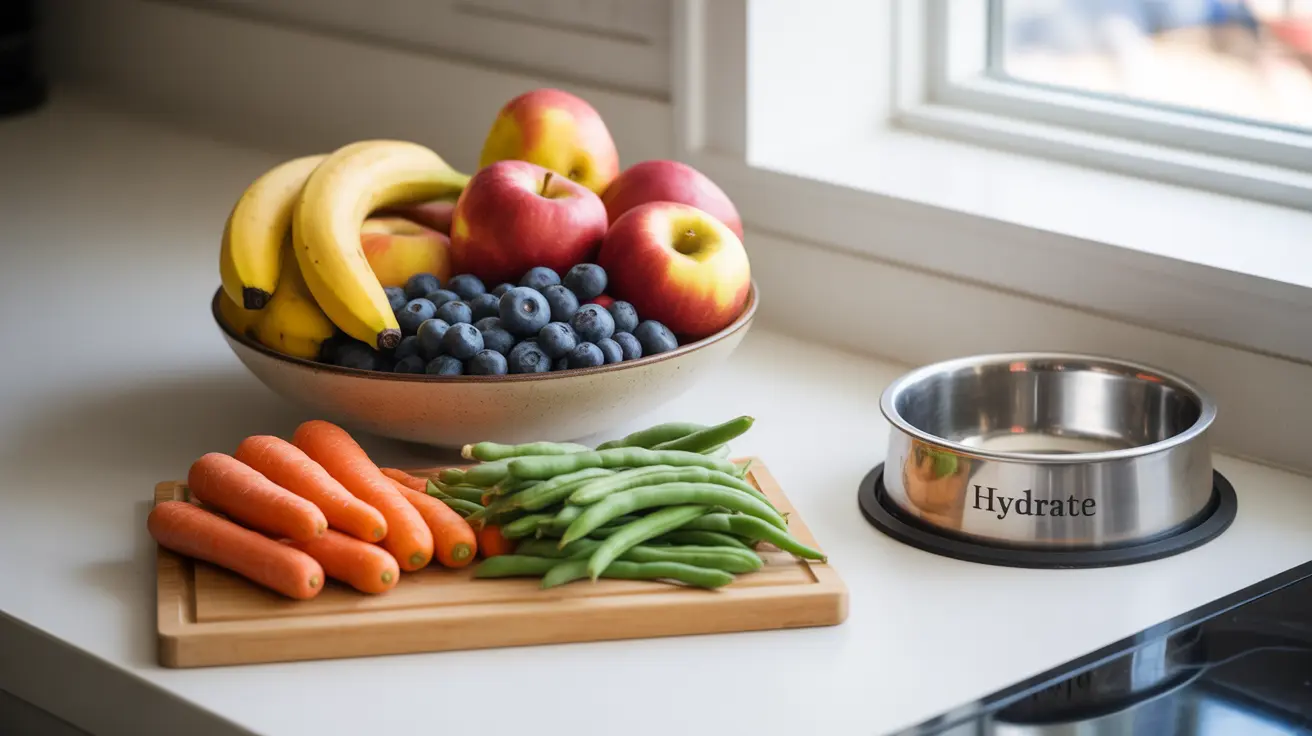As pet parents, we often wonder what human foods we can safely share with our canine companions. While dogs should primarily eat balanced commercial dog food, certain human foods can be healthy, nutritious treats when given in moderation. Understanding which foods are safe and how to prepare them properly is crucial for your dog's health and wellbeing.
Safe Fruits and Vegetables for Dogs
Many fruits and vegetables make excellent low-calorie treats for dogs, providing essential vitamins, minerals, and fiber. Here are some safe options:
Safe Fruits
- Apples (without seeds)
- Bananas
- Blueberries
- Watermelon (seedless, no rind)
- Cantaloupe
- Strawberries
Safe Vegetables
- Carrots
- Green beans
- Sweet potatoes (cooked)
- Pumpkin (plain, cooked)
- Cucumber
- Celery
Protein-Rich Human Foods for Dogs
Several protein sources from our kitchen can be safely shared with dogs when properly prepared:
Lean Meats
- Plain, cooked chicken
- Turkey (unseasoned)
- Lean beef
- Cooked eggs
Seafood Options
- Plain, cooked salmon
- Cooked shrimp (peeled)
- White fish (deboned)
Foods to Avoid
While many human foods are safe for dogs, some can be dangerous or even toxic. Never feed your dog:
- Chocolate
- Grapes and raisins
- Onions and garlic
- Avocados
- Macadamia nuts
- Foods containing xylitol
- Raw or undercooked meat
- Salty snacks and processed foods
Guidelines for Feeding Human Foods
When introducing human foods to your dog's diet, follow these important guidelines:
- Start with small portions to test for allergies or sensitivities
- Always remove seeds, pits, and bones
- Avoid seasoning or added fats
- Keep treats to 10% or less of daily caloric intake
- Cook all meat thoroughly
- Wash fruits and vegetables carefully
Safely Adding Fresh Foods to Your Dog's Diet
Incorporating human foods into your dog's diet requires careful planning to maintain nutritional balance. Always consult with your veterinarian before making significant changes to your dog's diet, and introduce new foods gradually to prevent digestive issues.
Frequently Asked Questions
What human foods are safe for dogs to eat as treats or snacks?
Safe human foods for dogs include lean meats like chicken and turkey, many fruits such as apples and bananas, and vegetables like carrots and green beans. Always serve these foods plain, without seasonings or additives, and in moderation.
Which fruits and vegetables can dogs eat without risk of choking or digestive upset?
Dogs can safely eat soft fruits like bananas, blueberries, and watermelon (without seeds), as well as vegetables like carrots, green beans, and cooked sweet potatoes. Always cut foods into appropriate sizes to prevent choking.
Can dogs eat seafood like shrimp and salmon, and how should these be prepared?
Yes, dogs can eat properly prepared seafood. Cook salmon and shrimp thoroughly without seasonings or oils. Remove all shells from shrimp and bones from fish to prevent choking hazards.
What common human foods should be avoided or given with caution to dogs due to potential health risks?
Avoid giving dogs chocolate, grapes, raisins, onions, garlic, avocados, and foods containing xylitol. These items can be toxic to dogs and cause serious health problems.
How can I safely incorporate homemade or fresh foods into my dog's diet without causing nutritional imbalances?
To safely add fresh foods to your dog's diet, limit treats to 10% of daily calories, maintain commercial dog food as the primary nutrition source, and consult with your veterinarian. Introduce new foods gradually and watch for any adverse reactions.




